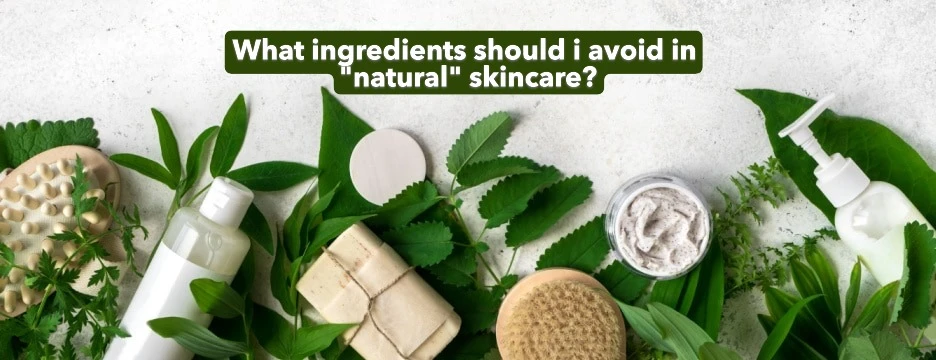What ingredients should i avoid in "natural" skincare?
What Ingredients Should I Avoid in “Natural” Skincare?
“Natural” skincare sounds safe and wholesome, but not all natural ingredients are automatically good for your skin. In fact, some can be irritating, comedogenic (pore-clogging), or even cause allergic reactions—especially when used in the wrong concentration or skin type. Here’s a breakdown of common natural ingredients to be cautious about, and why.
1. Essential Oils (Tea Tree, Lavender, Lemon, Peppermint, etc.)
While essential oils are popular for their antibacterial or aromatic properties, they are potent and can easily irritate sensitive skin. Citrus oils like lemon and bergamot are phototoxic, meaning they can make your skin more sensitive to sunlight, leading to burns or hyperpigmentation. Lavender and peppermint may cause allergic reactions or contact dermatitis in some individuals. If used, they should be highly diluted.
2. Alcohol (Denatured Alcohol, SD Alcohol 40, Ethanol)
Some “natural” toners and astringents include alcohol for its quick-drying, oil-reducing properties. But alcohol can severely dry out your skin, compromise the skin barrier, and trigger more oil production or inflammation, especially in acne-prone or dry skin types. Look instead for gentler alternatives like witch hazel (also with caution) or aloe vera.
3. Coconut Oil
Though natural and nourishing for the body or hair, coconut oil is highly comedogenic, meaning it tends to clog pores and can trigger breakouts in people with oily or acne-prone skin. If you love using oils in your routine, lighter options like jojoba or squalane are better suited for the face.
4. Raw Apple Cider Vinegar
This popular DIY skincare ingredient is often praised for its antibacterial and exfoliating effects. However, used undiluted, apple cider vinegar is extremely acidic and can damage the skin’s barrier, leading to burns, redness, or extreme dryness. If used at all, it should always be diluted heavily and patch-tested.
5. Baking Soda
Baking soda is alkaline and often promoted for use in scrubs or DIY masks. But the skin’s natural pH is slightly acidic (around 4.5–5.5), and using baking soda can disrupt the acid mantle, leading to dryness, irritation, and increased sensitivity over time.
6. Fruit Enzymes or Acids (Pineapple, Papaya, Lemon Juice)
These can offer exfoliating benefits, but when used in raw or DIY forms, they’re unregulated and too harsh for many skin types. Lemon juice, for instance, can cause photosensitivity, irritation, and uneven pigmentation. If you want the benefits of fruit enzymes, choose professionally formulated products where the concentration is controlled.
7. Fragrance (Even Natural Ones)
Even natural fragrances like rose water or essential oils can cause sensitivity. Fragrance—whether synthetic or natural—is a common irritant, especially for people with eczema, rosacea, or sensitive skin.
Final Thoughts
“Natural” doesn’t always mean “safe” or “better.” Many natural ingredients can be beneficial, but others may cause more harm than good—especially when misused or not formulated properly. Always patch-test new products, read ingredient labels carefully, and remember: your skin’s health depends on balance, not just labels. Choose products that are not only natural, but suitable for your skin type and dermatologically tested for safety.

Related Blog
What Causes Oily Skin and Can It Be Managed Naturally? Exploring Root Causes and Gentle Solutions
Aug 2, 2025 by Admin
General
What Are the Signs That You Have Sensitive Skin? Key Symptoms to Help You Identify This Delicate Skin Type
Aug 1, 2025 by Admin
General